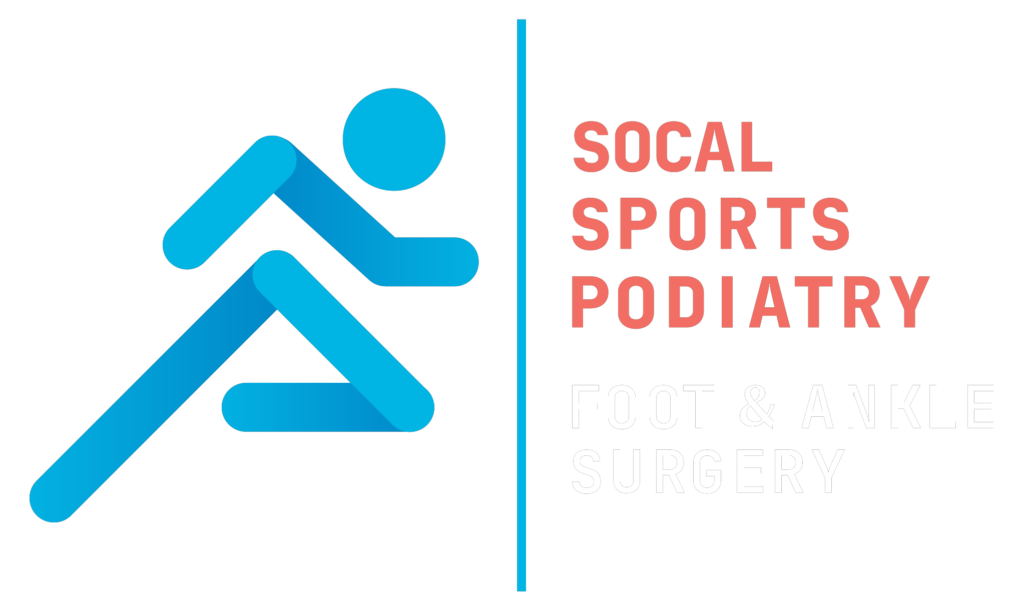
Stress Fractures
Stress fractures are small, hairline fractures in the bones that occur due to repetitive stress or overuse, often seen in athletes and individuals who engage in high-impact activities. These fractures can cause significant discomfort and disrupt your daily routine. Understanding stress fractures, their causes, symptoms, and treatment options can help you manage and recover from this condition effectively.
Stress Fractures Treatment in Santa Monica, CA
At SoCal Sports Podiatry, our doctors are committed to diagnosing and treating stress fractures to help you recover effectively. We provide personalized care tailored to your needs, aiming to get you back to your active lifestyle as soon as possible. Schedule an appointment with us today to start your path toward healing and renewed mobility.
What is a Stress Fracture? A stress fracture is a tiny crack or fracture in a bone caused by repetitive force or overuse. Unlike acute fractures that result from a sudden impact or trauma, stress fractures develop gradually due to repeated stress on the bone, often in weight-bearing areas such as the feet and lower legs.
Causes of Stress Fractures
- Overuse: Repeated high-impact activities, such as running, jumping, or sports involving frequent changes in direction, can lead to stress fractures. The repetitive stress can exceed the bone’s ability to repair itself, resulting in tiny fractures.
- Sudden Increase in Activity: Rapidly increasing the intensity, duration, or frequency of physical activities without allowing the body adequate time to adapt can increase the risk of stress fractures.
- Poor Footwear: Wearing inappropriate or worn-out shoes with inadequate support and cushioning can contribute to stress fractures by failing to absorb shock effectively.
- Foot Abnormalities: Structural abnormalities, such as flat feet or high arches, can alter the distribution of stress on the bones, making them more susceptible to fractures.
- Weak Bones: Conditions that lead to weakened bones, such as osteoporosis or nutritional deficiencies, can make individuals more prone to stress fractures.
Symptoms of Stress Fractures
Stress fractures often present with localized pain at a specific point on the bone, which typically worsens during activity and eases with rest. Mild to moderate swelling may occur around the affected area, although it is usually less pronounced than in acute fractures. The site of the stress fracture may be tender to the touch, with increased pain upon applying pressure. Additionally, individuals may find it more painful to bear weight or engage in activities that stress the affected bone.
Diagnosis and Treatment at SoCal Sports Podiatry
At SoCal Sports Podiatry, our specialists diagnose stress fractures through a comprehensive evaluation, including a detailed medical history, physical examination, and imaging tests such as X-rays or MRI. These tests help confirm the presence of a stress fracture and determine the severity of the condition.
Treatment Options
- Rest and Activity Modification: Reducing or temporarily ceasing activities that exacerbate pain allows the bone to heal. Rest is crucial for recovery, and a gradual return to activity is recommended once the pain subsides.
- Ice Therapy: Applying ice to the affected area can help reduce swelling and relieve pain. It is typically recommended to use ice for 15-20 minutes several times a day.
- Footwear Adjustments: Wearing supportive and well-cushioned shoes can help reduce stress on the affected bone. Custom orthotic inserts may also be recommended to improve foot mechanics and support.
- Pain Management: Over-the-counter or prescription pain medications, such as nonsteroidal anti-inflammatory drugs (NSAIDs), can help manage pain and reduce inflammation.
- Physical Therapy: Targeted exercises and stretches may be prescribed to strengthen the muscles surrounding the affected bone and improve overall foot and leg function.
- Protective Devices: In some cases, using a walking boot or crutches may be necessary to offload stress from the affected area and facilitate healing.
- Gradual Return to Activity: Once the stress fracture has healed, a structured and gradual return to physical activity is essential to prevent re-injury. Your healthcare provider will guide you on how to safely resume your activities.
Stress Fracture Prevention
Preventing stress fractures involves several key strategies. Gradually increasing physical activity allows the bones and muscles to adapt, avoiding sudden changes in intensity or duration that could lead to injury. Wearing proper footwear with adequate support and cushioning—especially for high-impact activities—and regularly replacing worn-out shoes help reduce stress on the bones. Incorporating strength training and stretching exercises into a routine can improve muscle balance and provide better support for the skeletal system. Additionally, maintaining bone health through proper nutrition, including sufficient intake of calcium and vitamin D, strengthens bones and reduces the risk of stress fractures.
For effective diagnosis and treatment of stress fractures, visit SoCal Sports Podiatry at our office. Our team of experts is committed to providing personalized care to help you recover from stress fractures and return to your active lifestyle. Call us at (310) 395-5025 to schedule an appointment and take the first step toward a pain-free life.

Contact Us
Services
Testimonials
Had a great experience overall! Dr. Sheth did an amazing job with my foot and has a great sense of humor as well! Highly recommend them.
Dr. Patel was very personable and kind to my 87 year old uncle. He took time to explain what was happening with his healing process and asked if we needed anything else. I appreciate his demeanor and expertise.
This is the most promise I've seen after four other surgeries. Both Dr. Patel and Sheth are great. They are fast - turned it around in less than a week and their surgery coordinator, Matty is amazing. This foot has been an unbelievable burden and I genuinely feel excited by how this seems like it's turning out...excellent service, smart and friendly doctors.
Scheduling an appointment and filling out the online patient form was very easy. Jordan the medical assistant who also did the scheduling was very cordial and helpful. Dr. Sheth was professional and friendly and never once pushed for unnecessary procedure.
SoCal Sports Podiatry
2001 Santa Monica Blvd. Suite 465-W
Santa Monica, CA 90404
(310) 395-5025



